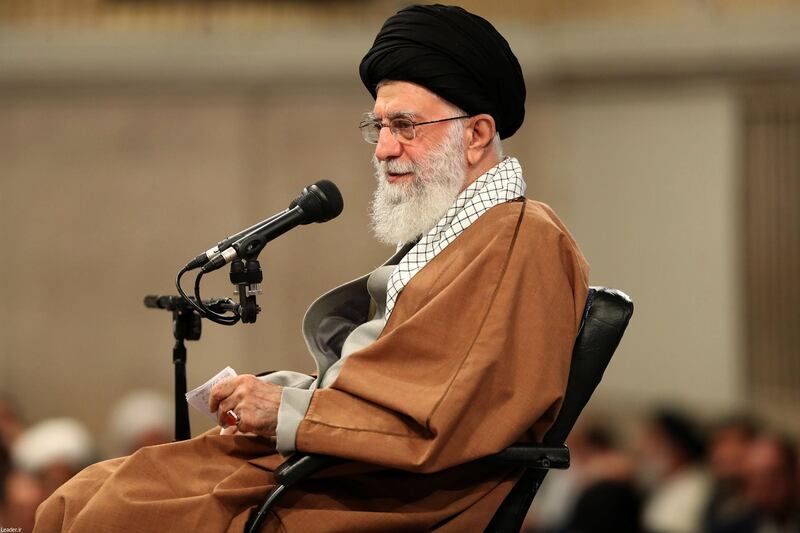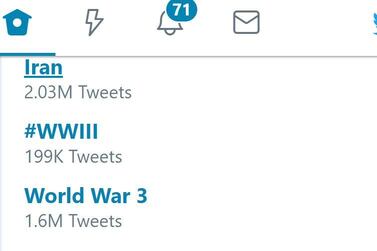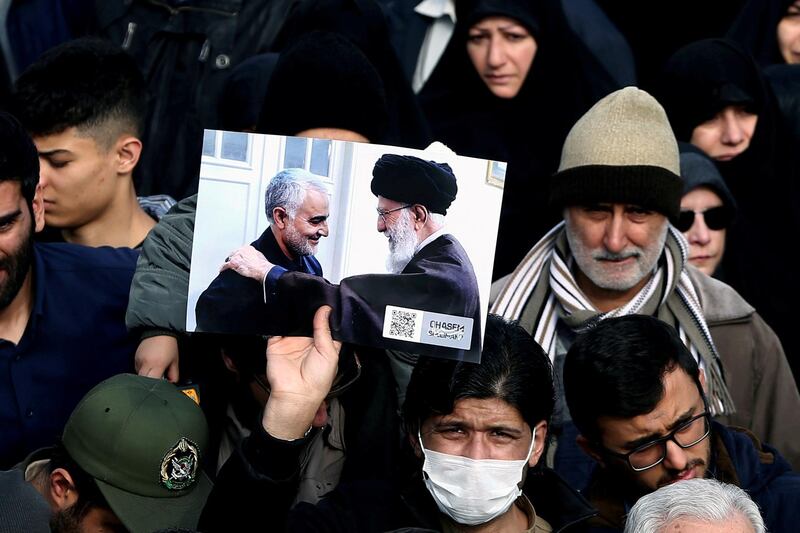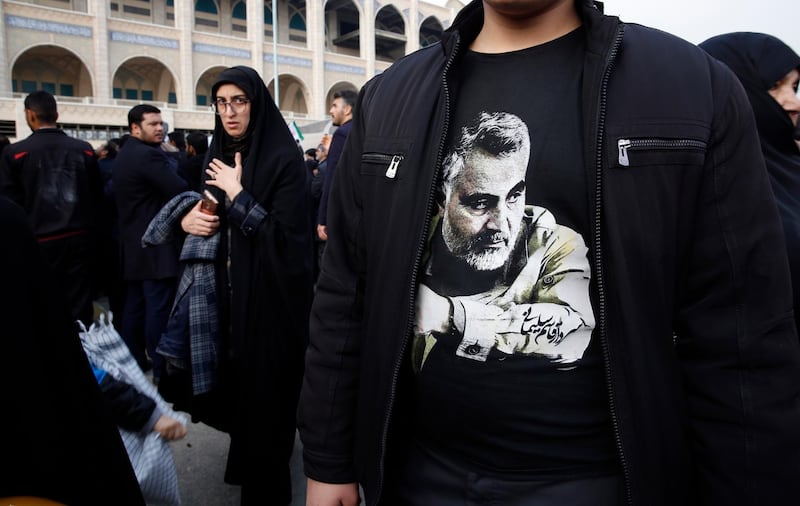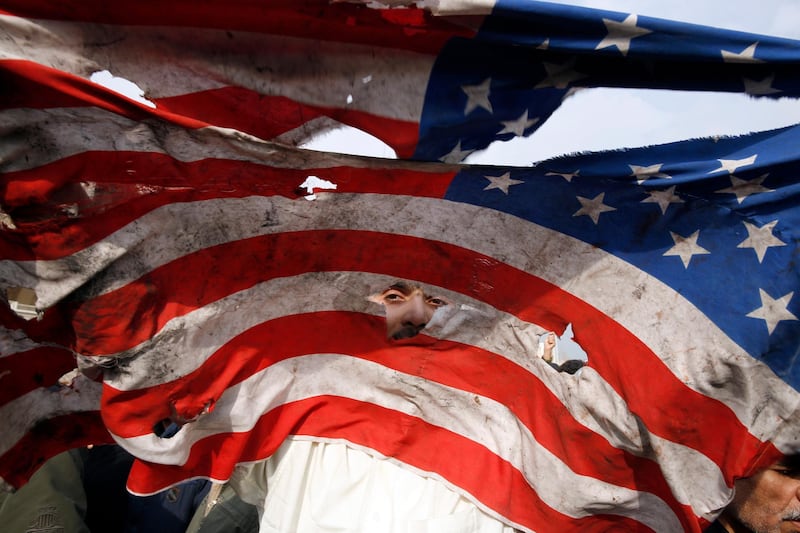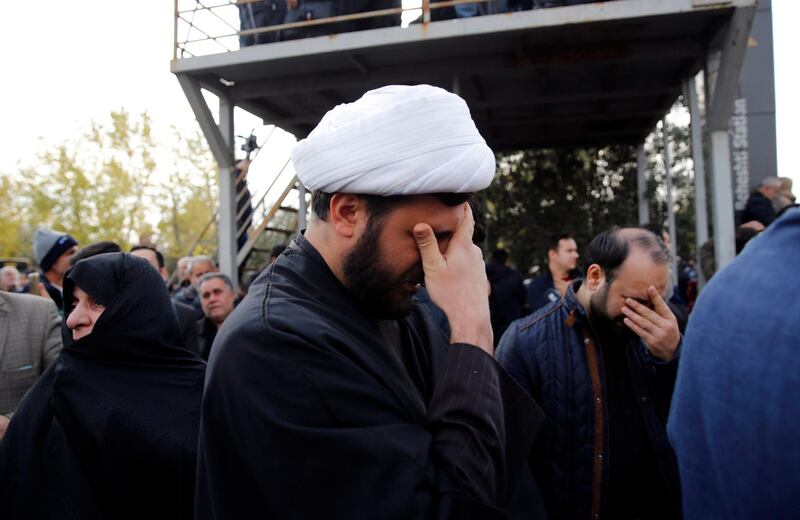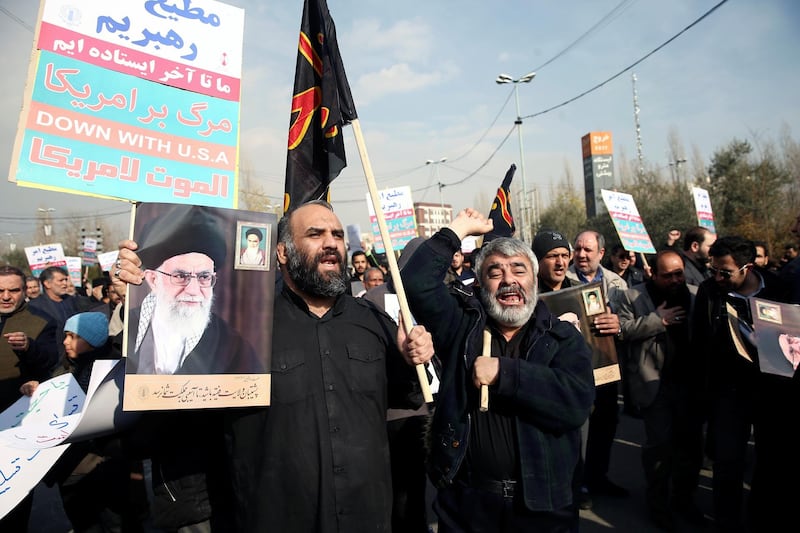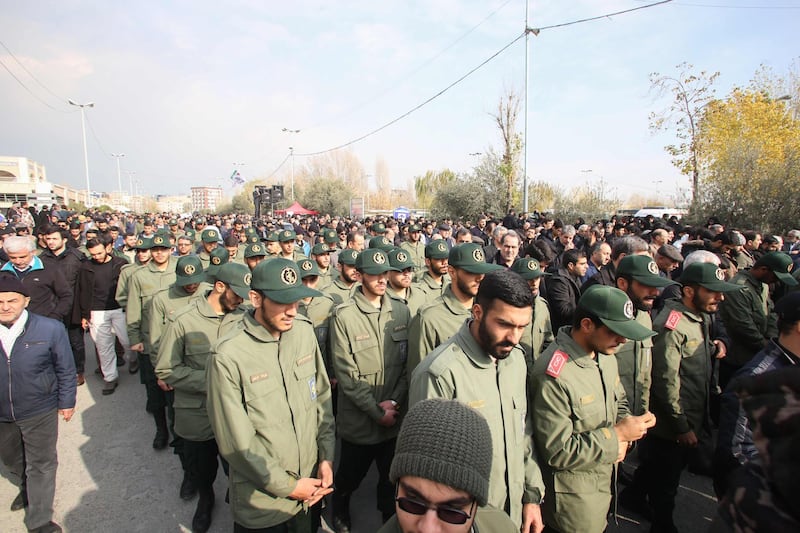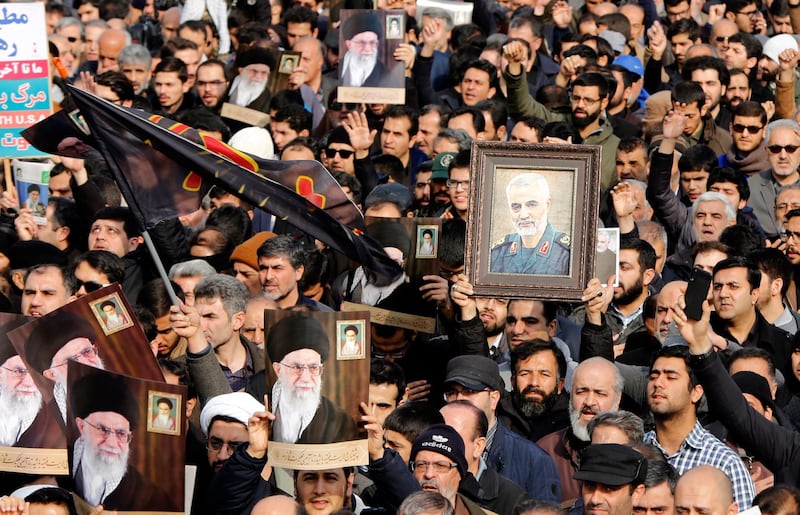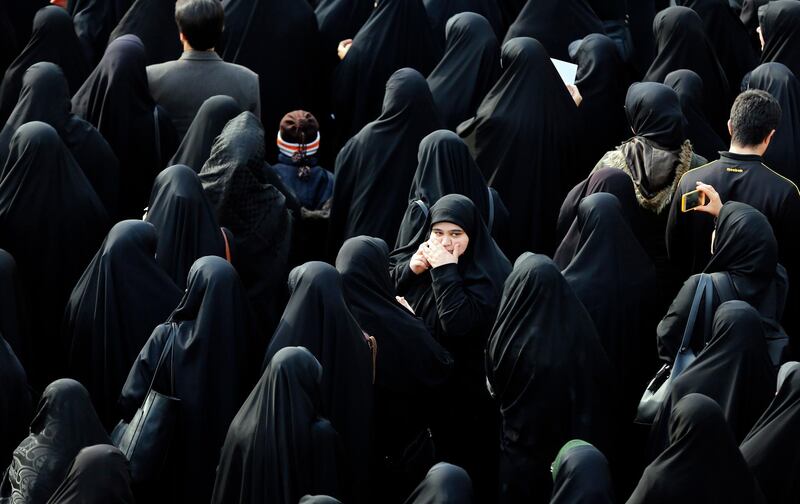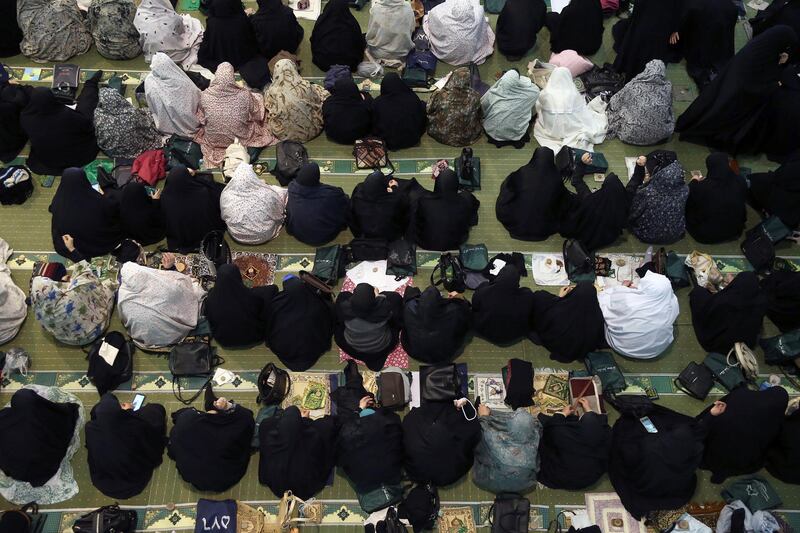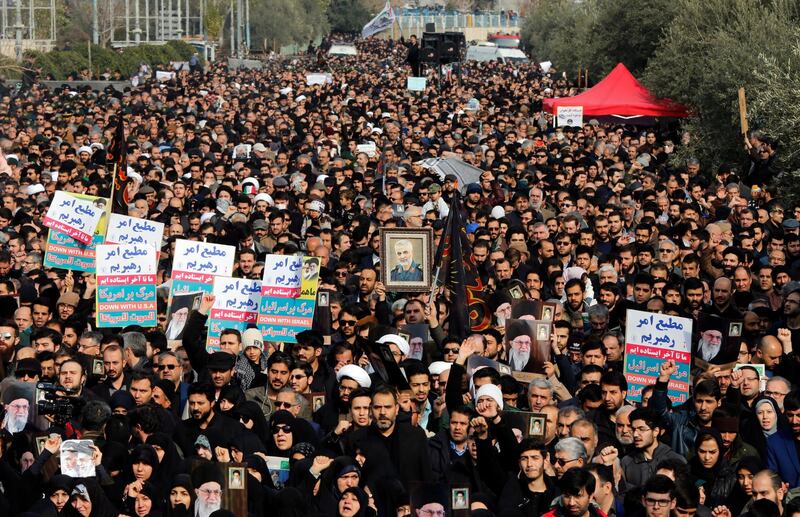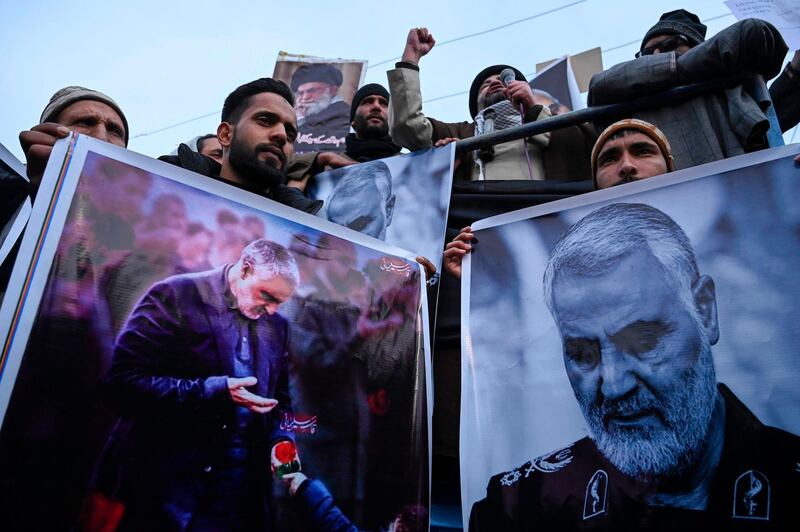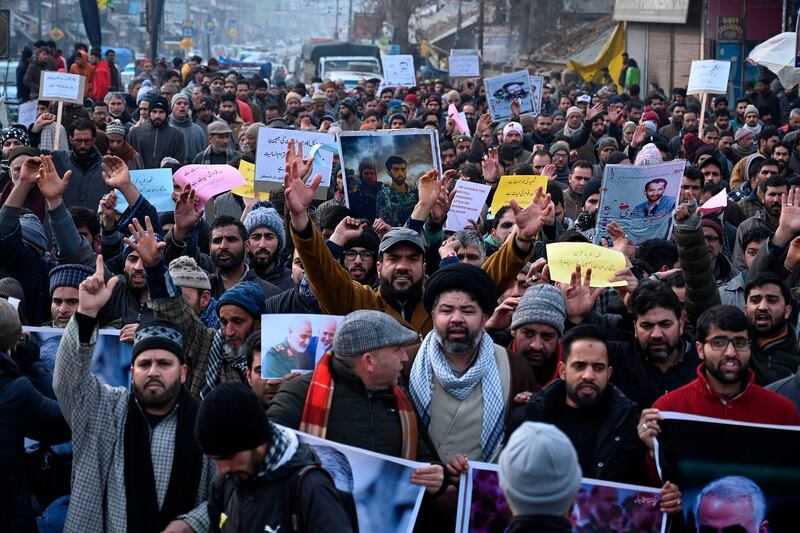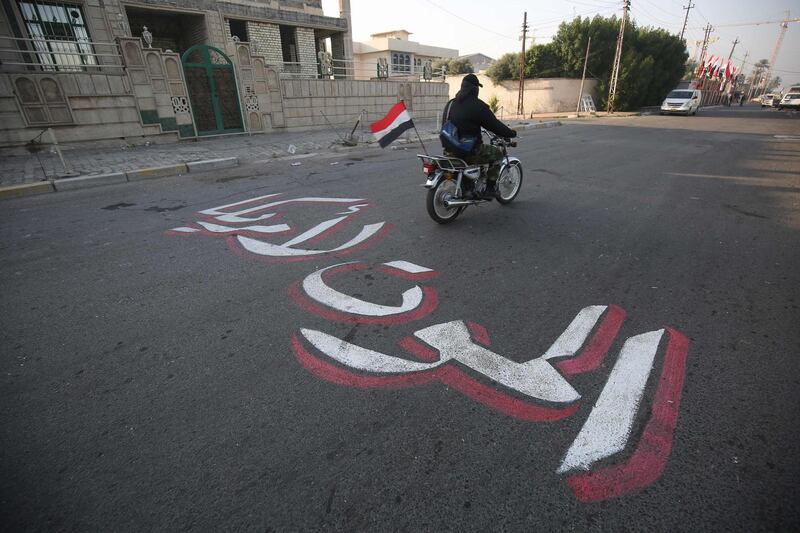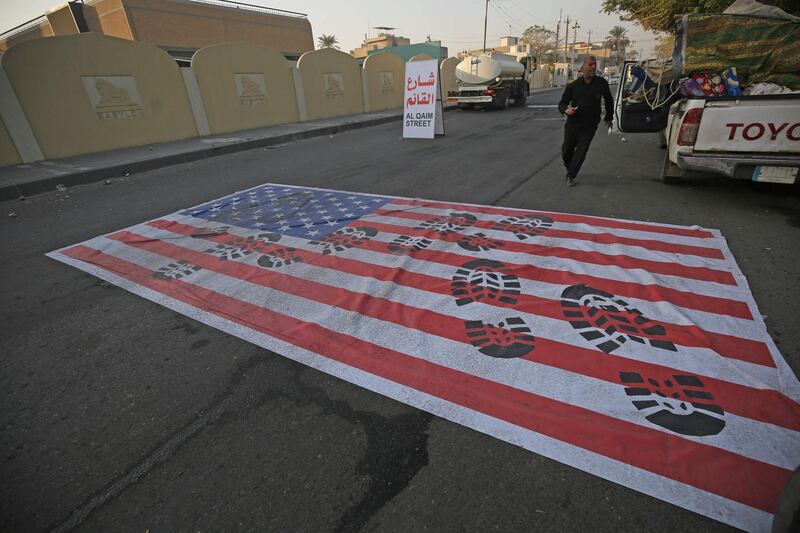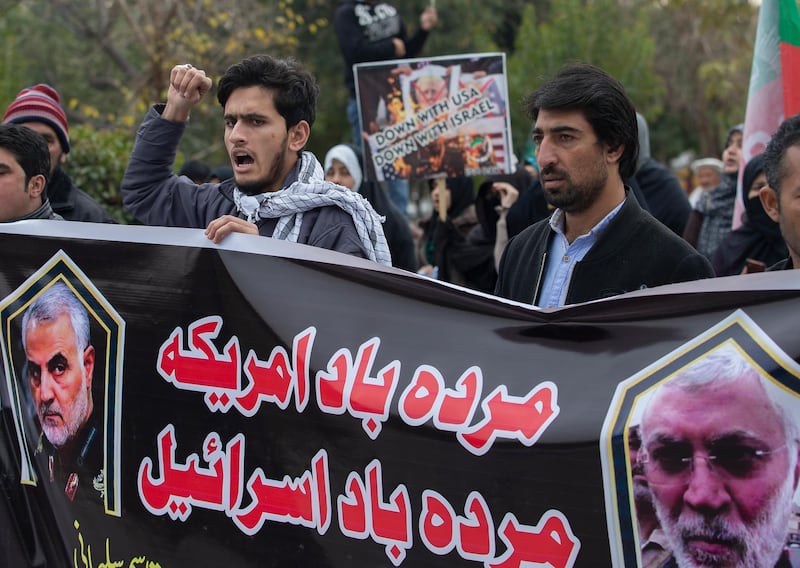Iran vowed to retaliate to the US air strike at Baghdad airport that killed Qassem Suleimani, the mastermind behind its interventions across the Middle East.
Iran’s supreme leader Ayatollah Ali Khamenei declared three days of public mourning for the head of the Quds Force, the overseas operations arm of its Islamic Revolutionary Guard Corps.
Mr Khamenei said the US faced "severe revenge" for Suleimani's killing, while President Hassan Rouhani called the assassination "an extremely dangerous and foolish escalation" and said the US "bears responsibility for all consequences of its rogue adventurism".
Iran’s top security body, the Supreme National Security Council, met to discuss the attack. Iran also summoned the Swiss charge d'affaires, who represents US interests in Tehran, to lodge a protest.
The Pentagon said Suleimani was killed because he was plotting attacks on US diplomats and forces in Iraq and the wider Middle East.
Iraq's caretaker prime minister Adel Abdul Mahdi said the strike was a "flagrant violation" of the country's security accord with the US and warned it would "spark a devastating war in Iraq".
Iraq's parliament was scheduled to meet on Saturday to discuss the attack, according to Deputy Speaker Hassan Al Kaabi, who said the session would be dedicated to taking “decisive decisions that put an end to US presence inside Iraq”.
The Iran-backed Iraqi militia Asaib Ahl Al Haq urged its fighters to be on high alert while the cleric Moqtada Al Sadr reactivated his Mahdi Army, nearly a decade after dissolving the notoriously anti-American force.
In Lebanon, the leader of the Iran-backed Hezbollah group, Hassan Nasrallah, warned of "punishment for these criminal assassins".
The US strike has raised fears of a conflict that could engulf the region and divided opinion among politicians in Washington.
In Congress, which was not told in advance of the attack, reaction was split along party lines.
"Wow – the price of killing and injuring Americans has just gone up drastically," tweeted Republican Senator Lindsey Graham, a supporter of President Donald Trump.
The Democratic House of Representatives Speaker Nancy Pelosi said killing Suleimani risked provoking a "dangerous escalation of violence".
"America – and the world – cannot afford to have tensions escalate to the point of no return," Ms Pelosi said in a statement.
Former vice president Joe Biden, the Democrats leading contender for the White House, said Mr Trump had "just tossed a stick of dynamite into a tinderbox".
"Iran will surely respond. We could be on the brink of a major conflict across the Middle East," he said.
